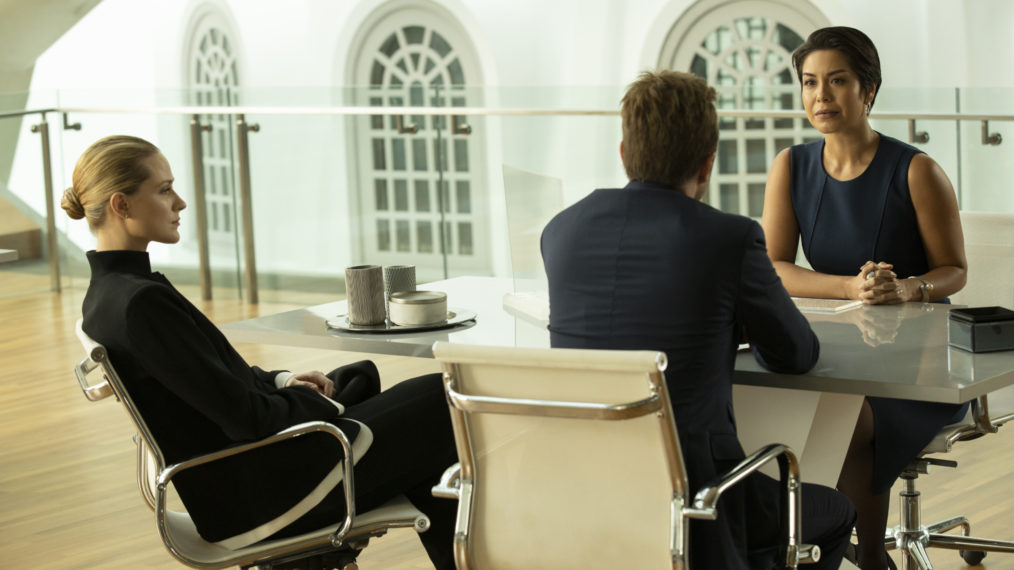

She has become Yul Brynner in the original “Westworld,” a robot hellbent on destruction, only infinitely smarter and more devious. This woman who has died so many times is now more alive than anyone on the show, because she has unburdened herself of the existential malaise that grips all the other major characters. Thandie Newton, who plays the character, has been the clear standout performance in this back half of the first season, as Maeve has gone through the excruciating process of becoming self-aware and emerged as an angel of vengeance on the other side. She’s like a sorceress with a magic wand. (In maybe the funniest moment of the sequence, a perplexed Armistice shoots the sheriff in the back anyway.) Maeve asks two marshals to practice quickdraw with each other, clearing the way for the robbery just for the malicious sport of it. She tells the sheriff that Hector and his outlaw friends are “upstanding, God-fearing citizens” and sends him on his way. Having acquired the ability to control the hosts from dim, gullible Felix and dim, odious Sylvester, Maeve decides to rewrite Lee Sizemore’s hackneyed saloon heist as a test of her newfound powers. The sequence in question finds Maeve, now a fully conscious and active storyteller in Sweetwater, playing with the loops that once dictated the course of her days. And so credit where it’s due: Sunday’s episode continues the show’s trajectory into dense narrative and philosophical terrain, but for at least one sequence, it also offers a taste of the delicious entertainment that might have been. But one of the last adjectives you’d use to describe the show is “fun,” despite the setting of an Old West fantasyland where sex and violence are presented to guests like a Vegas buffet line.

Crichton’s film look like a crude prototype of a much more sophisticated machine, like a host Ford and Arnold might have worked on decades before the park opened, perhaps before Anthony Hopkins had gray hair.
WESTWORLD SEASON 1 EPISODE 3 ONLINE TV
The TV version of “Westworld” has made Mr. Crichton always wanted to advance big, alarmist ideas - about viral plagues, about Japanese business tactics, about the true nature of sexual harassment - but his instinct for pleasing his audience is why he had a career as a best-selling author, rather than another penniless purveyor of hard sci-fi. Because for as much as Michael Crichton tried to suggest the dangers of technology and the hubris of resurrecting a world lost to history, his original “Westworld” was also a diverting piece of genre entertainment. With the few fragments of brain we have left this deep into the first season of “Westworld,” let us try once again to remember the source of Jonathan Nolan and Lisa Joy’s series, the starting point of the maze in which we currently find ourselves.


 0 kommentar(er)
0 kommentar(er)
